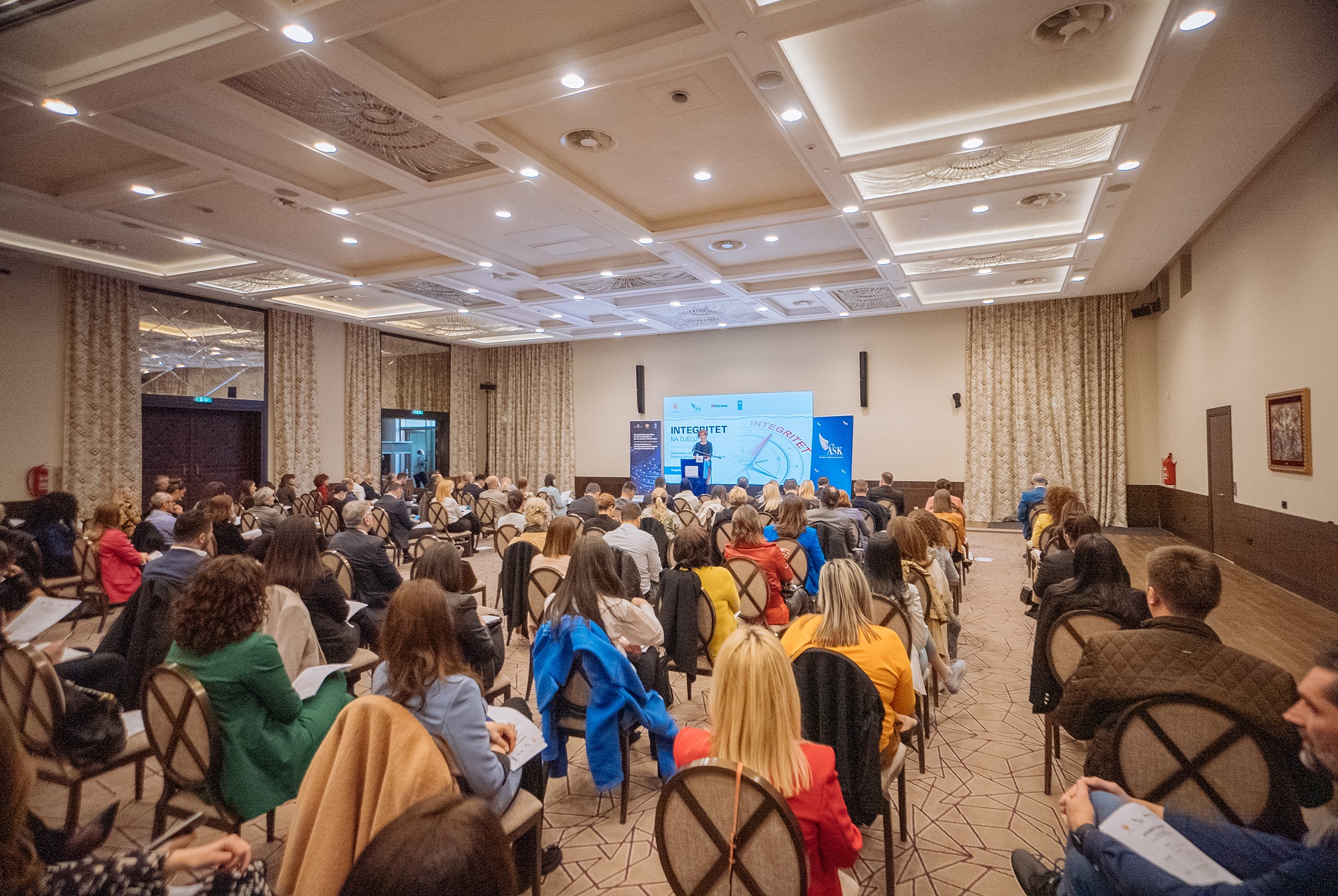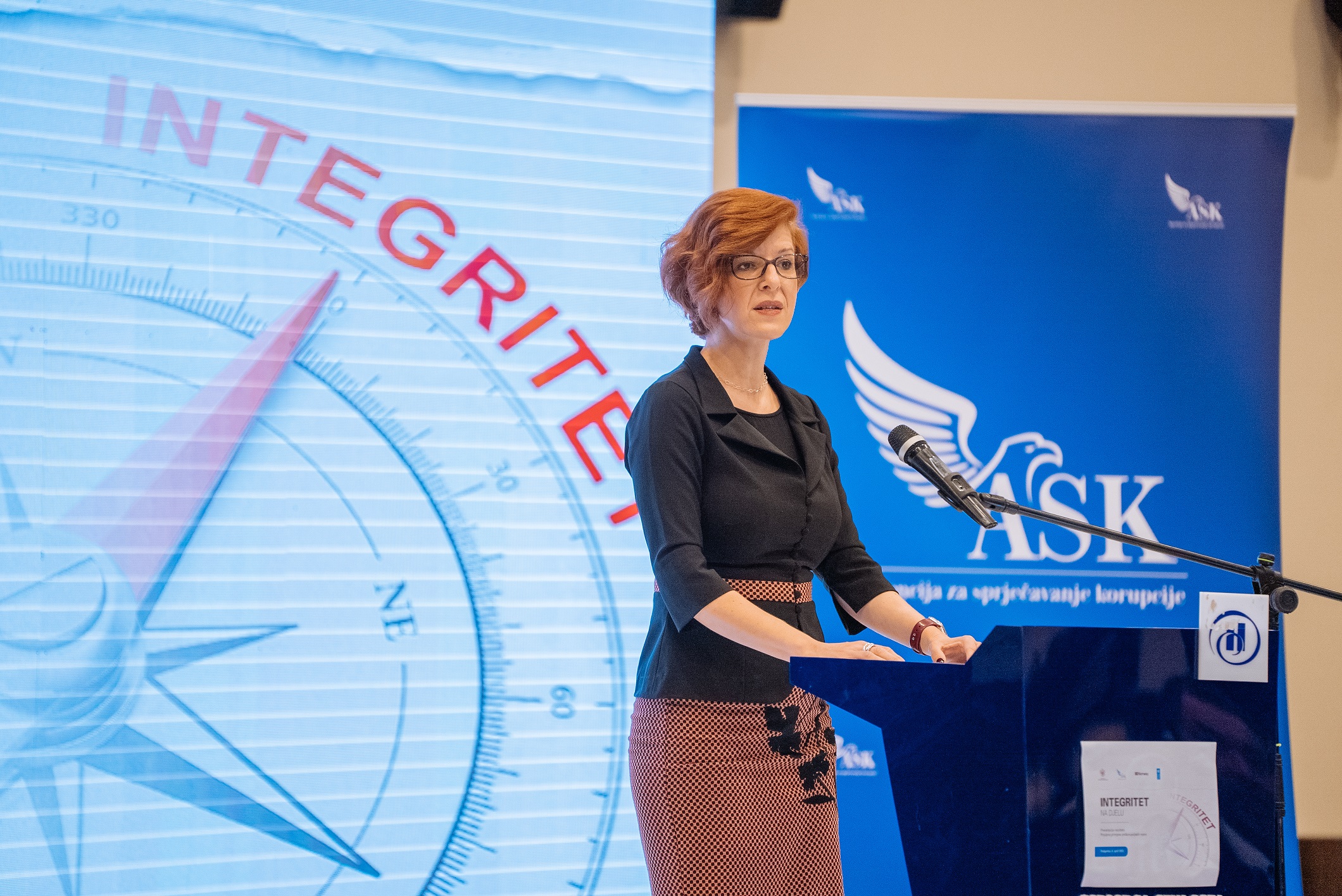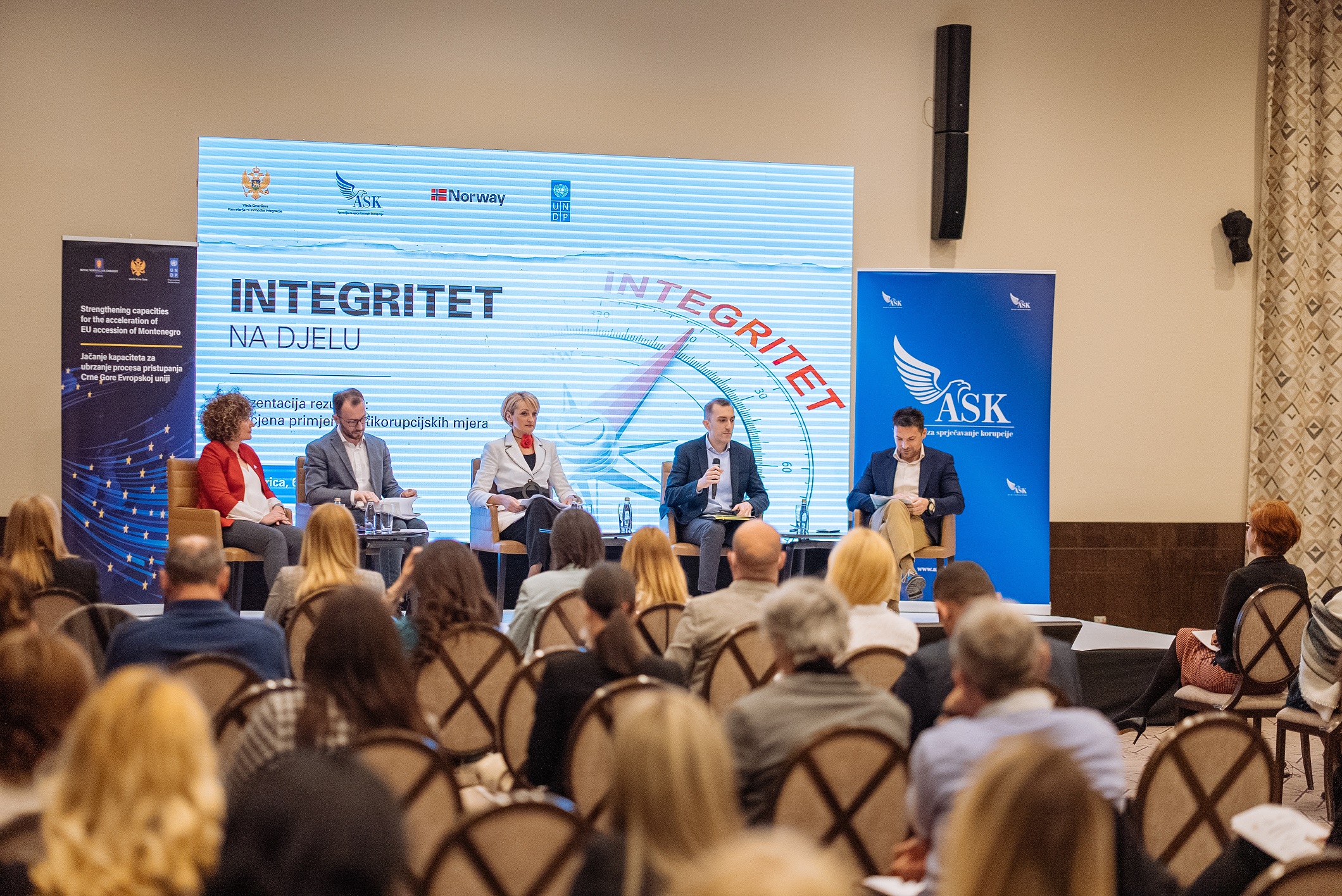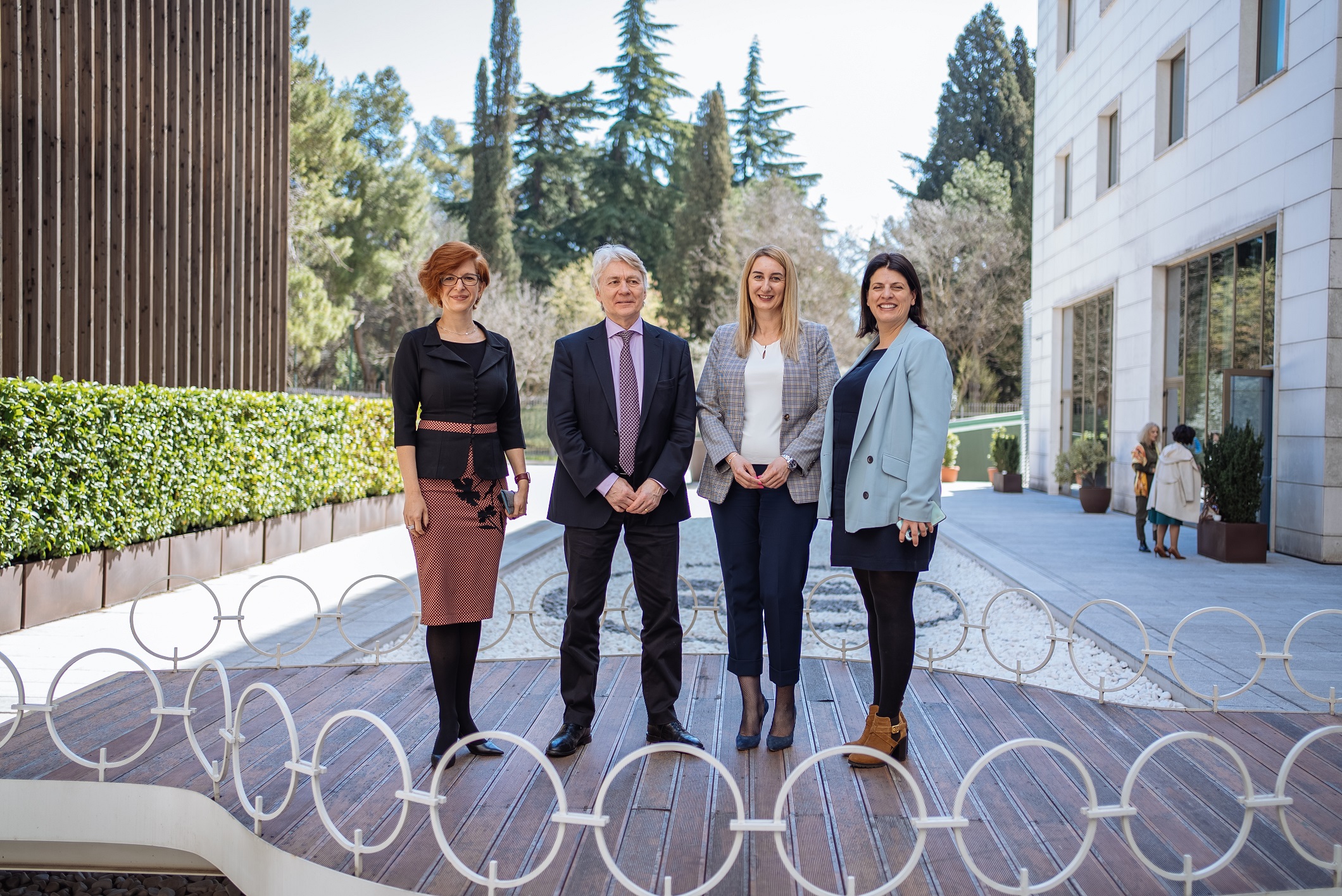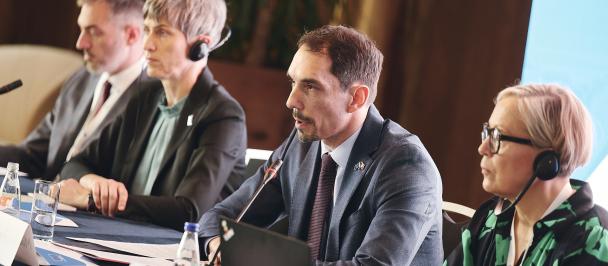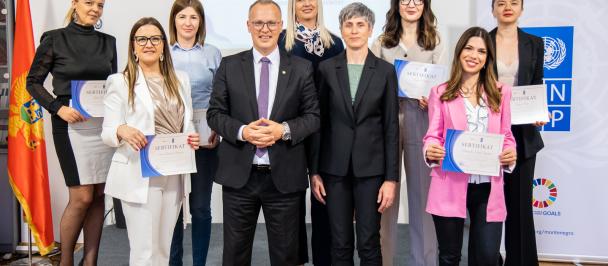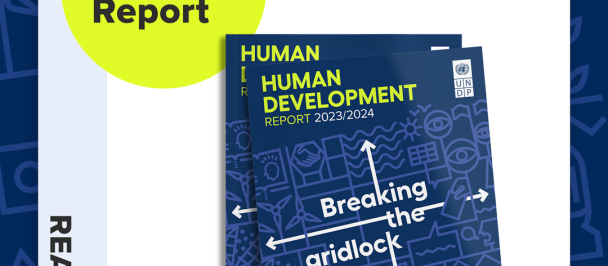Podgorica, April 6, 2022 – The Agency for the Prevention of Corruption, in partnership with the Office for European Integration and the United Nations Development Program (UNDP), with the support of the Norwegian Embassy, presented the impact of the work of public administration and social and child protection bodies in anti-corruption measures.
For the needs of the index, the Agency has developed a Methodology for assessing the application of anti-corruption measures, in consultative spirit and cooperation with representatives of state bodies and institutions of social and child protection, and on the principles of methodology implemented by the Anti-Corruption and Civil Rights Commission of the Republic of Korea. The purpose of the methodology is to assess whether the authorities are implementing anti-corruption measures and whether the implementation has led to a certain change, but also to encourage the authorities to be proactive in planning and implementing anti-corruption measures.
At today's event, entitled “Integrity in Action, “the director of the Agency for the Prevention of Corruption, Jelena Perović, said “that this institution, which monitors the adoption and implementation of integrity plans, as one of the key anti-corruption mechanisms, has been providing continuous support to the authorities.
The extent to which we have made joint progress is evidenced by the fact that the OECD report on the competitiveness of the Western Balkans, published in mid-2021, states that Montenegro has the most advanced system of support and monitoring of integrity plans in the region with a score of 4.5 possible 5.”
Despite the positive and encouraging trends, the Agency recognizes the space for strengthening the integrity of government bodies, which is confirmed by the development of the Methodology for assessing the application of anti-corruption measures.
H.E. Jørn Erling Gjelstad, Ambassador of the Kingdom of Norway in Belgrade, noted that although Montenegro has a good legislative framework in the fight against corruption, the assessment of anti-corruption measures indicates that there are a number of legal procedures that authorities do not apply consistently.
The chief negotiator, Zorka Kordić, pointed out that the synergy of all three branches of government and the development of concrete mechanisms and tools for the implementation of the legislative framework that enable the Montenegrin administration to function well for the benefit of citizens are essential for success in the negotiation process.
“Just as the systemic response of the entire society and all three branches of government is important for the overall reform of the judiciary and the fight against corruption, so the joint action of all our institutions and partners is crucial for successful progress towards EU membership,“ Kordić said, thanking the Government of the Kingdom of Norway on its continuous support to the capacity building project for the accelerated integration of Montenegro into the EU in the past years, implemented by the Office for European Integration in cooperation with the UNDP.
Daniela Gašparikova, UNDP Resident Representative for Montenegro, pointed out that this process's added value is encouraging pilot institutions to improve their anti-corruption mechanisms. “The assessment findings will be useful to the Ministry of Finance and Social Welfare for further improvement of the internal financial controls system. In addition, the Agency for Personal Data Protection and Free Access to Information is provided with findings that will enable it to work with institutions on fulfilling their obligations regarding the publication and updating of certain information in accordance with the Law“, Gašparikova said.
Through this process, the Agency measured whether 63 authorities are implementing anti-corruption measures arising from legal obligations, with a focus on the Law on Prevention of Corruption, the Law on Governance and Internal Control and the Law on Free Access to Information, as well as those not arising from legal obligations, but which can improve the integrity of their work. All information collected during the process was checked and agreed with the authorities, after which the institutions were ranked. This approach gives strong legitimacy to this process and encourages the Agency to use this tool in the future in the fight against corruption.
The Assessment Index explores the effect of anti-corruption measures and encourages the authorities to be proactive in planning and implementing anti-corruption measures. The effect was measured in the establishment of institutional mechanisms for corruption risk management, internal control, availability of work information, professional conduct of employees, raising employee awareness of ethics and integrity and preventing conflicts of interest, i.e. strengthening ethical culture.
The index of anti-corruption measures in the state administration system is 45%, and in the social and child protection system 41%, which indicates that there is room for improvement in both systems in the planning and implementation of anti-corruption measures. Both systems are most successful in creating the conditions for the implementation of anti-corruption regulations, while they have the least effect in creating an ethical culture.
When it comes to the system of social and child protection, the best ranked institution is the Public Institution Day Care Center Podgorica (71.5%), while the Public Institution Center for Social Work for the municipalities of Plav and Gusinje shows the lowest performance (16.7%). When it comes to state organs, the best performance was achieved by the Ministry of Public Administration, Digital Society and Media (76.4%), and the lowest by the Revenue and Customs Administration (10.5%).
The assessment indicated the need to strengthen internal controls, mechanisms for detecting and reporting corruption, ethical and professional conduct, and raising employees' awareness of ethics and integrity, as well as human resource management.
The methodology was developed within the project “Strengthening the capacity to accelerate Montenegro's accession to the European Union“, funded by the Norwegian Ministry of Foreign Affairs and implemented by UNDP in cooperation with the Office for European Integration and the General Secretariat of the Government.

 Locations
Locations